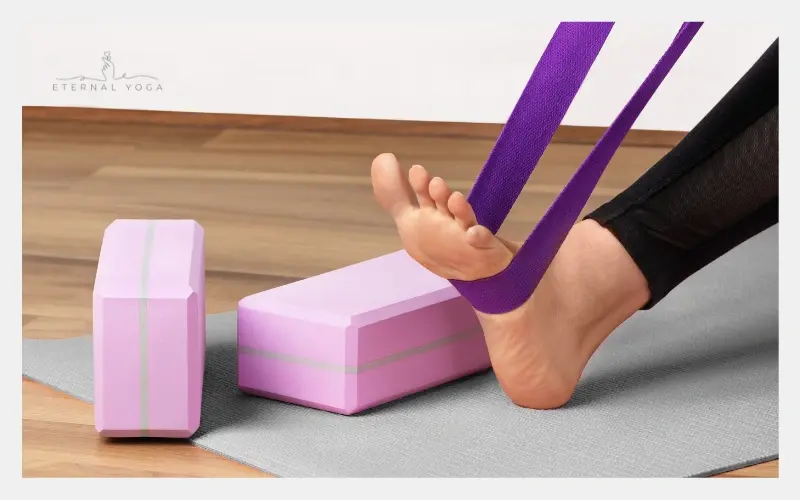In today’s hectic world, mental health struggles are more common than ever. Anxiety, depression, burnout, and emotional fatigue are affecting millions of Americans. If you’re feeling mentally down, you’re not alone. But there’s hope, and it doesn’t always come in the form of pills or pricey therapy sessions.
Yoga for Mental Health, an ancient practice as a powerful tool for mental healing. Let’s explore how yoga can help you regain peace, clarity, and emotional strength.
“I started yoga during a stressful time at work. I didn’t expect it to help my anxiety so much. Just 15 minutes of stretching and breathing each morning helps me feel grounded again.”
Emily R., 34 – New York, NY
Why Mental Health Deserves Your Daily Attention?
Mental health isn’t a luxury; it’s a necessity. According to the National Institute of Mental Health, nearly 1 in 5 U.S. adults experiences some form of mental illness each year. And many more suffer silently with stress, worry, or emotional exhaustion.
Ignoring these symptoms can lead to long-term consequences like insomnia, weakened immunity, and even chronic disease. But the good news? Yoga for mental health provides a gentle yet effective way to restore your emotional well-being.
How Yoga Heals the Mind and Soul?

Yoga isn’t just about stretching; it’s about reconnecting with your body, breath, and mind. With regular practice, yoga for mental health can positively impact your nervous system, lower stress hormones, and calm racing thoughts.
Here’s how:
- Regulates cortisol (the stress hormone)
- Stimulates serotonin (your “feel-good” chemical)
- Activates the parasympathetic nervous system, promoting rest and healing
- Enhances mindfulness and emotional control
These changes can lead to a dramatic shift in how you feel, mentally and emotionally.
“After battling depression and fatigue, therapy helped, but yoga was amazing. It gave me something physical, mental, and calm to do every day.”
Jason M., 41 – Austin, TX
“I tried yoga apps just to sleep better, but it ended up transforming how I see myself. My self-talk changed. I feel calmer, less reactive, and way more in control of my emotions.”
Samantha L., 26 – San Diego, CA
“Meditation never worked for me, but yoga did. It’s like active therapy for my brain. The deep breathing plus movement makes my stress melt away.”
Derek B., 38 – Chicago, IL
“Yoga gave me peace I didn’t know I needed. I started with YouTube videos during the pandemic, and now it’s a core part of my mental health routine.”
Natalie W., 29 – Seattle, WA
7 Powerful Mental Health Benefits of Yoga

If you’re on the edge mentally, here’s how yoga can help:
1. Reduces Anxiety
Yoga for mental health slows down your thoughts and helps anchor your mind to the present. Breathwork (pranayama) especially reduces nervous system hyperactivity.
2. Lowers Depression
Studies show that yoga boosts GABA levels, a neurotransmitter linked with better mood and reduced depression.
3. Improves Sleep Quality
Regular yoga helps relax your body and mind, making it easier to fall—and stay—asleep.
4. Enhances Focus and Clarity
By combining movement and mindfulness, yoga improves brain function and helps you think clearly, even on stressful days.
5. Builds Emotional Resilience
Yoga teaches you to sit with discomfort, breathe through tough moments, and build inner strength.
6. Boosts Self-Esteem
Yoga enhances body awareness and self-image, particularly for individuals struggling with negative thoughts or low self-confidence.
7. Brings a Sense of Inner Peace
Even just 10 minutes of yoga can help quiet your inner critic and foster deep calm.
How Do I Know I’m Mentally Not Fit?

Mental health problems aren’t always obvious. You don’t need a clinical diagnosis to know that something is wrong. Here are some common signs that your mental health may need attention:
Warning Signs:
- Constant fatigue or lack of energy
- Trouble sleeping (or oversleeping)
- Feeling anxious, irritable, or emotionally numb
- Loss of interest in things you used to enjoy
- Difficulty focusing or making decisions
- Physical symptoms like headaches or stomach issues without a clear cause
- Feeling overwhelmed, hopeless, or emotionally disconnected
If you recognize any of these symptoms in yourself, it may be time to prioritize your mental health, and yoga can be a gentle starting point.
Is Yoga for Mental Health Scientifically Proven?

Yes, many scientific studies back yoga as an effective mental health support tool. Here’s what research shows:
- Harvard Medical School reports that yoga can reduce symptoms of anxiety and depression by regulating the nervous system and improving GABA levels.
- A study in the Journal of Psychiatric Practice found that yoga significantly improved symptoms in people with major depressive disorder.
- The National Institutes of Health (NIH) recognizes yoga as a complementary therapy for stress, PTSD, insomnia, and anxiety.
- Yoga also reduces cortisol, the body’s primary stress hormone, helping you feel calmer, sleep better, and manage emotions more effectively.
Yoga isn’t just a wellness trend, it’s a science-backed way to support your mental and emotional health naturally.
Best Yoga Poses for Mental Wellness
If you’re a beginner, start with these soothing poses:
- Child’s Pose (Balasana): A deeply calming position that helps release tension.
- Legs-Up-the-Wall (Viparita Karani): Great for calming your nervous system.
- Corpse Pose (Savasana): A simple yet powerful relaxation pose.
- Cat-Cow Stretch: Gently moves the spine and relaxes the mind.
- Bridge Pose: Stimulates the brain and improves circulation.
Practice these poses slowly, with deep breathing, in a quiet space.
How Often Should You Practice Yoga?
Consistency is key. You don’t need an hour every day; just 10-20 minutes 3-5 times a week can make a huge difference in your mental health.
Try to create a simple and practical routine that suits your lifestyle. Morning or evening is ideal, but whenever you can get on the mat is fine.
Yoga vs. Meditation: Which Is Better?
Both are incredible tools. But here’s the truth:
It combines breath, movement, and stillness, making it a powerful all-in-one practice for mental healing. If traditional meditation feels hard, yoga might be a gentler path into mindfulness.
Read More: Morning Yoga vs Gym: Which Is Better?
How to Start Yoga for Mental Health as a Beginner?
- Start small: 10 minutes a day is enough.
- Use YouTube or free apps: Try Yoga With Adriene, Daily Yoga, or Insight Timer.
- Create a quiet space: Even a corner of your room works.
- Be kind to yourself: Progress, not perfection, is the goal.
Final Thoughts: Yoga Is a Lifeline
Mental health struggles are real, and they can feel overwhelming. But with yoga, you can start healing—gently, naturally, and without judgment.
Even if you feel low, anxious, or stuck today, your mat is waiting.
Ready to Begin?
Read and download our 7-Day Beginner Yoga guide. Join this healing journey.
Download 7 Days Beginner Yoga Plan
Frequently Asked Questions
Can yoga help improve mental health?
Yes. Yoga has been scientifically proven to reduce stress hormones, increase mood-enhancing neurotransmitters, and help maintain emotional balance.
Which type of yoga is best for mental health?
Gentle practices like Hatha Yoga, Yin Yoga, and Restorative Yoga are excellent for calming the mind and reducing stress.
How often should I do yoga to improve my mental health?
Even 10–20 minutes a day, 3–5 times a week, can make a noticeable difference in mood, stress levels, and mental clarity.
Can yoga help with anxiety and depression?
Yes. Yoga for mental health activates the parasympathetic nervous system and increases GABA and serotonin levels, both are essential for reducing anxiety and improving mood in depression.









Comments are closed.